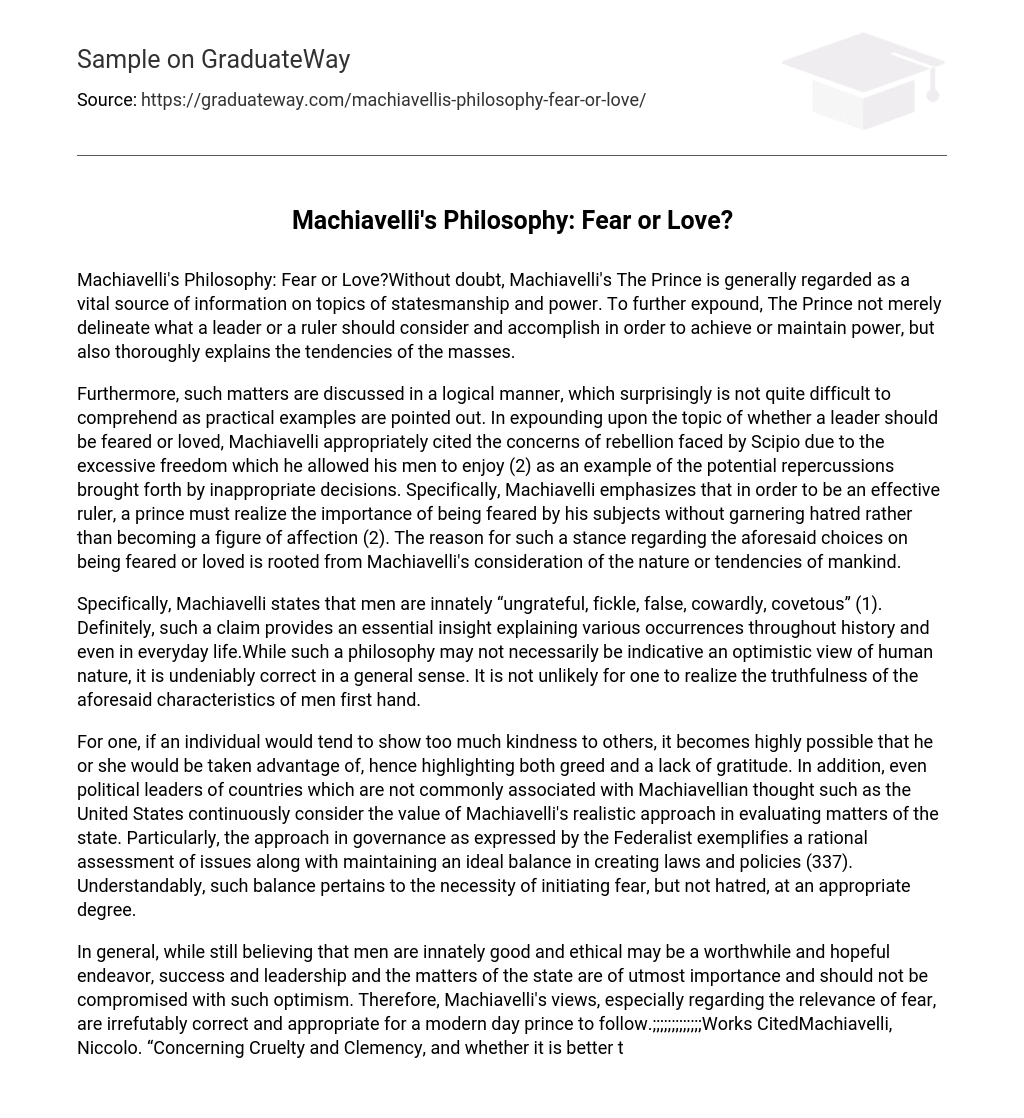Machiavelli’s Philosophy: Fear or Love? Without a doubt, Machiavelli’s The Prince is generally regarded as a vital source of information on topics of statesmanship and power. To further expound, The Prince not merely delineates what a leader or a ruler should consider and accomplish in order to achieve or maintain power, but also thoroughly explains the tendencies of the masses. Furthermore, such matters are discussed in a logical manner, which surprisingly is not quite difficult to comprehend as practical examples are pointed out. In expounding upon the topic of whether a leader should be feared or loved, Machiavelli appropriately cited the concerns of rebellion faced by Scipio due to the excessive freedom which he allowed his men to enjoy as an example of the potential repercussions brought forth by inappropriate decisions. Specifically, Machiavelli emphasizes that in order to be an effective ruler, a prince must realize the importance of being feared by his subjects without garnering hatred rather than becoming a figure of affection.
The reason for such a stance regarding the aforesaid choices on being feared or loved is rooted from Machiavelli’s consideration of the nature or tendencies of mankind. Specifically, Machiavelli states that men are innately “ungrateful, fickle, false, cowardly, covetous” . Definitely, such a claim provides an essential insight explaining various occurrences throughout history and even in everyday life.While such a philosophy may not necessarily be indicative an optimistic view of human nature, it is undeniably correct in a general sense. It is not unlikely for one to realize the truthfulness of the aforesaid characteristics of men firsthand. For one, if an individual would tend to show too much kindness to others, it becomes highly possible that he or she would be taken advantage of, hence highlighting both greed and a lack of gratitude.
In addition, even political leaders of countries that are not commonly associated with Machiavellian thought such as the United States continuously consider the value of Machiavelli’s realistic approach in evaluating matters of the state. Particularly, the approach in governance as expressed by the Federalists exemplifies a rational assessment of issues along with maintaining an ideal balance in creating laws and policies. Understandably, such balance pertains to the necessity of initiating fear, but not hatred, at an appropriate degree. In general, while still believing that men are innately good and ethical may be a worthwhile and hopeful endeavor, success and leadership and the matters of the state are of utmost importance and should not be compromised with such optimism. Therefore, Machiavelli’s views, especially regarding the relevance of fear, are irrefutably correct and appropriate for a modern-day prince to follow.
Works Cited
- Machiavelli, Niccolo. “Concerning Cruelty and Clemency, and whether it is better to be Loved than Feared.
- ” The Prince. Course Handout/Primary Document.Whelan, Frederick G. Hume and Machiavelli: Political Realism and Liberal Thought.
- Lanham, MD: Lexington Books, 2004. Print.





